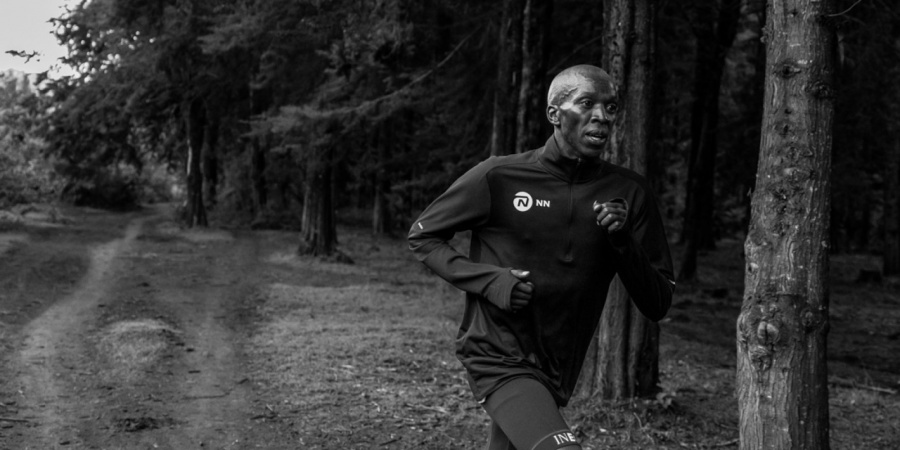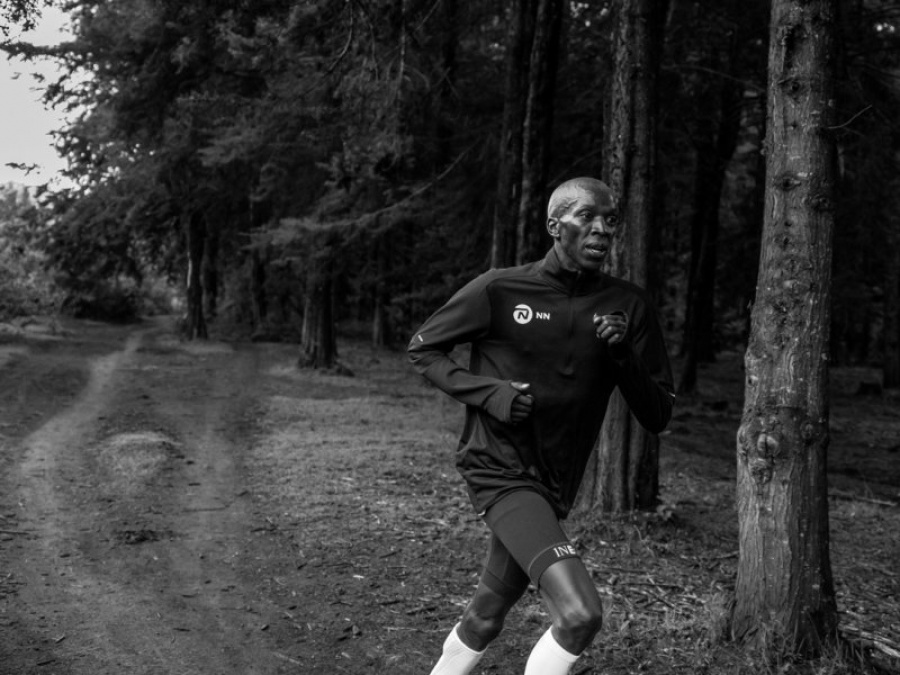

This is Kaan Kigen Özbilen
It was a long time Kaan Kigen Özbilen stood on the outside looking in.
The 2:04 marathon man is no new face to athletics. For almost 20 years he has stood perched somewhere nears its top step. A double silver medallist from the African Champs in 2006, he was fifth in that year’s World Cross-Country Championships.
A sub-13 minute 5000m runner long before the latest shoes, Özbilen has always kept credentialed company. Yet for most of his career it was challenging not training with the Global Sports Communication (GSC) camp in Kaptagat.
The now-Turkish international was Kenyan by birth. After displaying some promise at school, Özbilen travelled to Nyahururu for a junior race, impressing enough to catch the eye of Sammy Rono, the former middle-distance man who would go on to be national coach of Team Kenya.
"I can take you to my training camp." Rono told him. Özbilen’s life as an athlete had begun.
That training base was the PACE camp just seven kilometres from the GSC camp he now calls home. It was a strong setup in its own right.
Micah Kogo would go on to break the 10km world record in 2008, the same year he won Olympic bronze over 10,000m. Fellow campmate Benjamin Limo took the 2005 world 5000m title.
But even then Özbilen looked at the GSC camp with envious glances. Brimin Kipruto was at that time dominating the 3000m steeplechase on his way to taking 2008 Olympic gold.
Eliud Kipchoge was a face more than familiar from many, and Stephen Kiprotich was just starting to develop into the athlete that would win London 2012 Olympic marathon.
Over the years, Özbilen began to meet up more and more frequently with the GSC group, the two squads invariably making useful training partners for some of the longer runs.
Fleeting interactions with Patrick Sang, steadily Özbilen knew that especially when he stepped up to the marathon, there was no camp in the world more suited than the one a few kilometres from his own.
For most of his life and still to those that knew him before, Özbilen has been known as Mike Kigen and it was under that name that he continued to develop into a world-class athlete.
In 2011 he broke the one-hour barrier in the half marathon on only his second attempt, running 59:58 in a hot New Delhi to finish third.
In 2013 a marathon debut saw him run 2:08:24 in Dubai, a statement of intent of his capability over the distance. And in 2014 at the peak of Mo Farah's powers Kigen pushed him all the way at that year’s Great North Run.
Through his time racing all over the world Kigen began to see the same faces again and again. One of these friends kept coming back to Kenya and asked Kigen if he’d consider becoming a Turkish citizen and representing them internationally.
For Kigen the opportunity for his four children to potentially study in Europe was too good to turn down. Family will always remain a priority for Kigen and his daughter is even displaying her own promise as a talented junior herself.
In 2015 Mike Kigen became Kaan Kigen Özbilen, making his international debut one year later at the European Athletics Championships in Amsterdam.
On a sunny day in the City of Hundred Spires, Özbilen introduced himself to the continental competition stunningly.
As the race neared its crescendo, Özbilen grabbed a Turkish flag from a spectator, holding the red and white above his head as he passed through the arches of the Rijksmuseum. The half-marathon silver medallist in an Olympic year.
Expectations duly rose of just what Özbilen could do at that summer’s Rio de Janeiro games, this time over the marathon. The Brazilian games was expected to be hot but conditions on the day were much different. Humid, constant rain showers did little to break up a pack that was over 20-strong at halfway.
Still there at 25km, Özbilen started to struggle thereafter, finishing a creditable 17th on his Olympic debut. Lessons learnt, four years to put them right.
After a more difficult 2017, Özbilen secured his first continental title as he ran away from a strong field to take the European Cross-Country crown in December of that year
Despite racing everything from 3000m to the marathon over the course of a season, Özbilen still showed glimpses of just what could happen if the training had purpose.
In 2018 he lowered his marathon best to 2:06:24 in Amsterdam, one year later ditching most of the other distances to finish second in both Rotterdam and Valencia. 2:05:27 in the former, 2:04:16 in Spain for a new European record.
Barely a few steps away from the very best in the sport, a genuine contender for major marathon medals.
With the Tokyo Olympic Games approaching, an opportunity arose for Özbilen to find that final piece in the puzzle.
The INEOS 1:59 Challenge required some of the world’s best athletes to join Kipchoge as pacemakers in his pursuit of the sub two-hour barrier. Özbilen was one of them and through that process he grew closer with Sang, Kipchoge and many of his campmates.
Conversations were had and Sang agreed that Özbilen could join the group in Kaptagat full-time, coming under GSC management in early 2020.
Özbilen was now the one on the inside looking out.
His chance to join the GSC group had come at what many may see as the later part of an athlete’s career but speaking to Özbilen is to converse with a student trying to soak in the very best of what the camp has to offer.
The dedication, professionalism but ultimately belief that you can compete for the very highest honours.
Özbilen has thrown himself in headfirst. After Tokyo was delayed one year, Özbilen redoubled his efforts, feeling strong and holding his own alongside the world’s best:
“The shape was wow, the shape was 100%.”
He recalls of the build-up to the 32nd Olympiad. Until his face saddens as he recalls what came a few days later.
On one of the final 40km runs Özbilen felt a sharp pain in his patellar tendon. From the form of his life, even walking became a problem. With it his Olympic dream was postponed again.
Özbilen returned to Valencia in 2022 to record another 2:04 clocking and head to another major championships with similar ambitions to compete for the podium.
At the Budapest World Championships, however, once more his body let him down, as a severe tightness in his calf afflicted him in the final days before competing.
Özbilen knows those injuries won’t be there forever. He knows from experience that better days await and he receives daily reminders from the resilience of his campmates.
From Geoffrey Kamworor returning from a motorbike crash to run a faster marathon than he ever has before, to Daniel Mateiko, five weeks after dropping out from the London Marathon returning to clock the fastest 10,000m time in the world at the Prefontaine Classic. Not to mention Faith Kipyegon’s world record breaking comeback from maternity.
Özbilen will head to the Olympic Games in Paris, proud of the journey he’s been on. But he is a dangerous athlete to overlook, one still hungry despite a 20-year career at the top.
Özbilen will be there competing for the podium. He’s come too far and achieved too much to aim for anything less.
